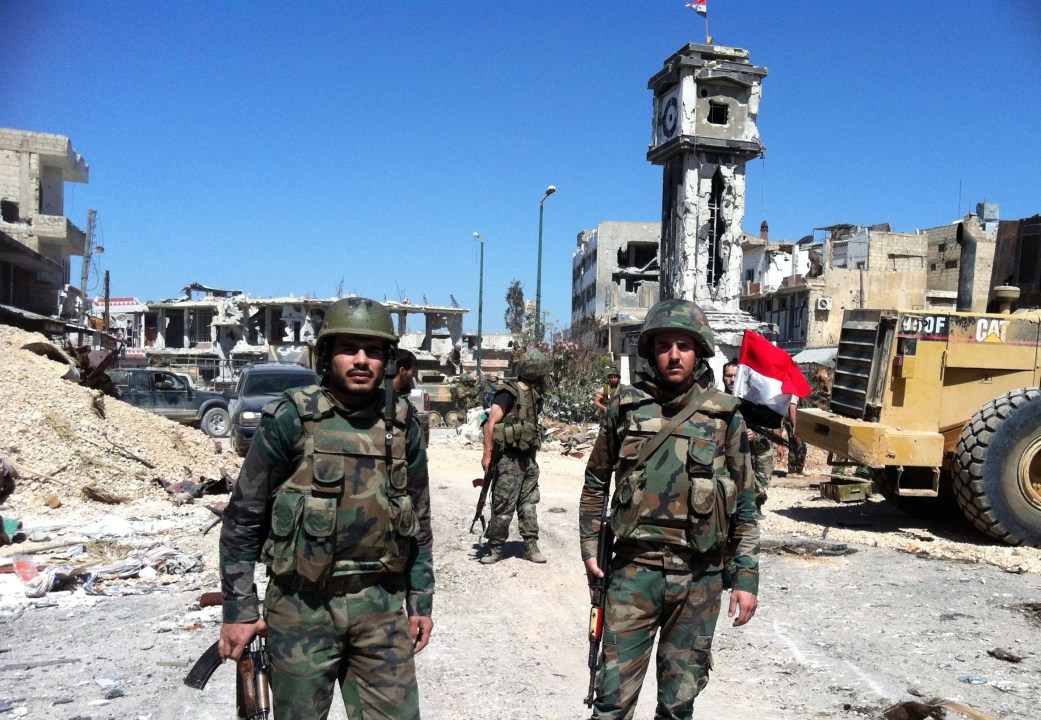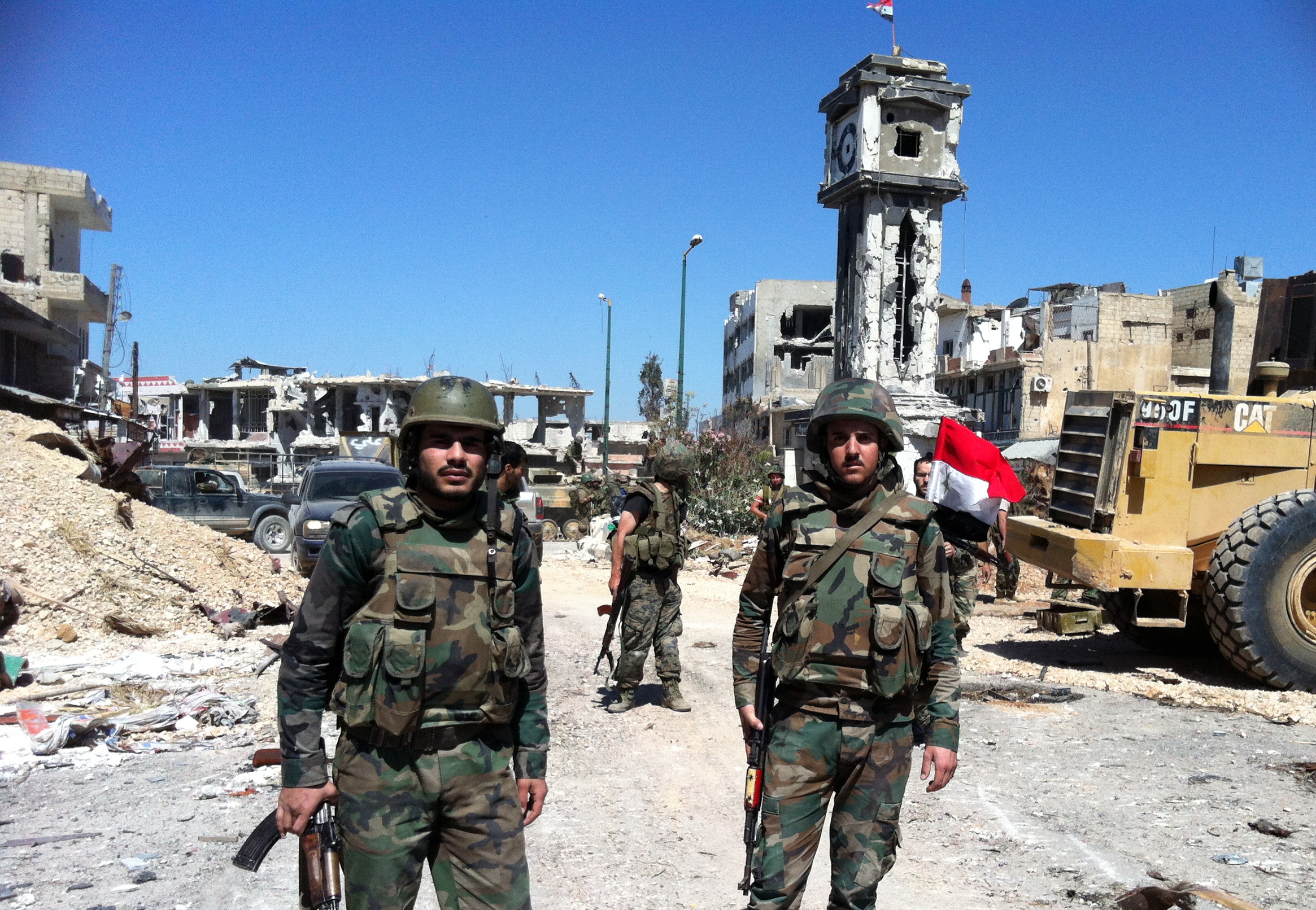There can be little doubt that Britain is edging towards intervening in Syria. President Bashar Assad’s bloody ruthlessness seems to be paying off: his forces are retaking former rebel strongholds (the strategic town of Qusair was reclaimed this week) and the more he believes he can win, the less likely he is to negotiate.
From a distance, there seems to be a case for the West to move quickly to help the rebels, and create a more level playing field. The aim would not be to prolong the conflict, but to make a negotiated peace settlement more likely.
The Prime Minister made the case in the Commons this week. ‘Unless we do more to support the official opposition,’ he said, ‘the humanitarian crisis will continue … and the political transition that we want to see will not happen and the extremists will continue to flourish.’ Cameron says he is also fairly confident that the Assad regime is using chemical weapons — which is Washington’s test for whether or not to intervene. Superficially there seems to be a fairly clear case for action. But the closer you look, the less clear any part of the Syrian civil war becomes.
This would be an easier problem to solve if the conflict was between the Assad government forces and ‘the official opposition’. It is not. The Syrian ‘opposition’ consists of dozens of warring factions, who may well turn their newly acquired arms on each other when (and if) Assad is toppled. There are secular and Christian groups — but also al-Qa’eda, and Jabhat al-Nusra, whose leader has pledged allegiance to al-Qa’eda and has 10,000 fighters. Ahrar al-Sham, a homegrown jihadi group, want Islamist rule without al-Qa’eda, and then there are the 20,000 devout Muslims in the al-Farouk Battalions who say they don’t want an Islamist state, but it’s unclear how much they’d object to one.
None of these groups was mentioned by anyone in Monday’s Commons debate — which was conducted in worryingly simplistic terms. ‘When I see the official Syrian opposition,’ Mr Cameron said, ‘I see a group of people who have declared that they are in favour of democracy, human rights and a future for minorities, including Christians, in Syria.’ But does he ‘see’ the Islamist rebels already carrying out beheadings? The legacy of the Arab Spring offers little hope that a post-Assad Syria would develop into a tolerant democracy. The lesson of 2011 is that democratic, secular reformers are far better at capturing western attention than winning subsequent power struggles.
Take, for example, the recent Battle of Raqqa, where Assad’s forces lost control of a northern city. The Islamist groups lost no time in taking control, and hoisting the black flag of al-Qa’eda above the main square. Another Islamist group is now running Raqqa’s buses and the local branch of the Syrian bank. The secular Free Syrian Army is nowhere to be seen. There are already reports of kidnappings, detentions and public executions (filmed and broadcast on YouTube). It is far from clear why anyone thinks this would not be repeated across Syria once Assad has gone. And the more weapons in the region, the bloodier the new cycle of violence may be.
Level playing fields lead to level killing fields. If the European Union allows arms to pour into Syria — directed at the ‘good’ rebels, of course — what will prevent Putin from equipping Assad with even better weapons? Mr Cameron was quite right in saying that the arms embargo has ‘served the extremists on both sides’. But a lifted arms embargo would do the same, to worse effect.
Quite a few of the Prime Minister’s colleagues worked in the last Conservative government and were scarred by its disgraceful prevarication over Bosnia. Mr Cameron acted boldly and effectively to save the Libyan rebels in Benghazi because he did not want to see another Srebrenica massacre. The echo of Bosnia can be heard in his argument that ‘extremism will flourish’ if we do not act now. British failure to intervene in the Balkans at an earlier stage in the 1990s undoubtedly further radicalised some already radical young Muslims. But in the 15 years since our intervention there, not many have credited Britain — or Tony Blair particularly — for eventually intervening. Extremism has its own momentum.
There may very well be a compelling argument for sending arms to the region, for thinking that intervention would stop rather than accelerate the cycle of violence. But we have not yet heard it.
As Britain gears up to intervene in Syria, it becomes ever more vital that proper discussion is held. On 24 June, The Spectator is holding a debate in central London where those for and against intervention (including Sir Malcolm Rifkind, the former foreign secretary) will make their case. We hope this will be the first of many such debates.
It is heartening that Mr Cameron believes Britain is a country that ought to shape the world, rather than be shaped by it. He is right to think there is a danger of over-complicating international affairs. But there is a danger of over-simplifying, too, as the last decade has taught us. The situation in Syria deserves far more thorough debate than it has been given so far.







Comments